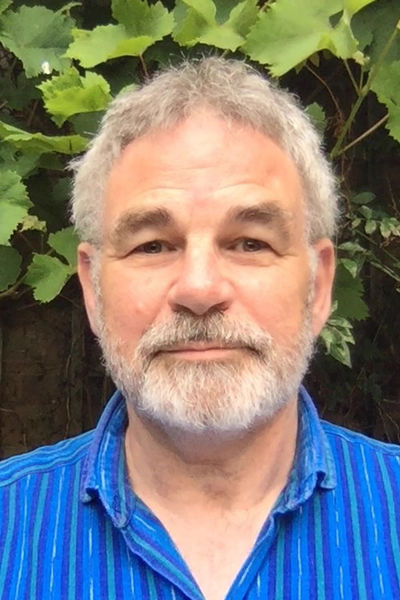Meet the therapist series: John Dinwoodie
John has been in practice since 1993, is a UKCP Registered Psychotherapist, accredited with NLPtCA – the Neurolinguistic Psychotherapy and Counselling Association offering both in-Person and online therapy.
Why did you become a Psychotherapist?
When I was 18, I was asleep in bed, when the phone rang. A female voice said, ‘I haven’t laughed for 40 years’. I found myself listening to a life story. It seemed I was a good listener.
In my late 20’s I decided it would be a good idea to stop smoking. I tried on numerous occasions to kick the habit but without success. I was recommended by a friend to see a Therapist and duly went along. After 5 sessions with Eileen I had no desire to smoke and I haven’t since.
The experience went so far beyond my wildest expectations, I just had to find out how that was achieved! That curiosity set me on a path to the heart of NLP therapy, Hypnosis, Humanistic Psychotherapy and on to UKCP registration. Through my own Personal Therapy in NLP, Jungian Therapy, Somatic Experiencing and Pesso Boyden Psychotherapy.
I revisited the bullied and crestfallen child within me, to emerge happier, stronger, more united; more engaged in the joy of life. I faced the fear and isolation of boarding school, as well as the protection mechanisms I had built to prevent myself feeling pain, shame and humiliation. Having made that journey, I felt a strong calling to end my parallel career as a Film Editor & Company Director and to practice full-time as a Psychotherapist.
What do you find interesting and attractive about the profession?
Psychotherapy to me personally has been of massive assistance: I have enormous respect for all the many caring and generous people who have helped me along the way. For me, Psychotherapy is the vital growing tip of human knowledge and development – it carries the hope and the possibility that we can become more loving and connected in our cultures, that we can more easily heal complex trauma, that we can still pursue that dream of a world with peace and goodwill between people and nations, to achieve a shift from consumerism to a more responsible way of life on earth.
What is your general philosophy and how would you use that to approach a normal session?
I believe that children are inherently good and happy when they have secure enough parenting; In my work, I assist my clients to work with their difficult feelings, to create new feeling memories of the past they would have experienced in a securely attached and fully supportive family and community.
In an ideal world, no parent would have a child without a deep grounding in how to achieve a secure and loving attachment, or without support to heal any mental health issue they face. In each relaxed, relational session, I seek to guide my clients back to the enjoyment and security of early childhood they often did not, but should have experienced.
Who would you normally work with?
All adults and couples. Adult Families, Older people. All Nationalities. Refugees. Trauma sufferers.
What are your strengths as a Therapist?
I bring relational warmth, compassion and integrity to my work. I do not judge. I listen with empathy. I am comfortable with strong emotions.
I have personally faced a good number of life’s challenges, so I know how it feels to be depressed, anxious, marginalised, traumatized or bullied. I also know for the vast majority of people, these problems are surmountable. Often a traumatic incident or crisis can become an opportunity to live with greater energy, joy and authenticity.
What do you want for the future of Therapy?
I see mental health as a vital goal of our culture, central to our community life and a concern of every person. There would be no divide between physical health and mental health – they would both be seen as central to life and national well-being.
In my ideal world, mental health would be at the centre of life, from infancy through to adulthood. Every stage would be informed by what scientific research now tells us about how to raise a child. Every school would have child development and attachment at the forefront of the curriculum, at the core of the school philosophy. All forms of neuro-divergence would be catered for equally. Every family would have easy access to advice, training and support for each person’s mental health. I view these changes as pre-requisites to a fully functioning community.



